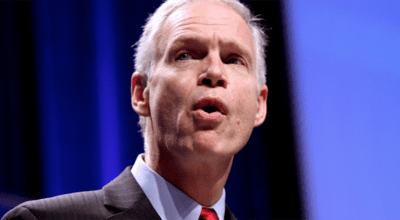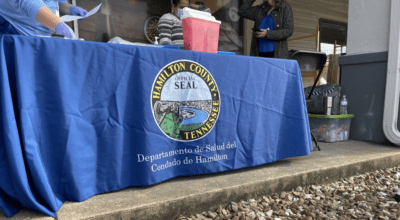
About 7 P. M. one night in December, 1931, two young men left Jackson, Tenn., for Brownsville, 26 miles away, to call on a set of young ladies.
Three miles out of Jackson it was discovered that the bulb in the left head-light had burned out. Andrew Taylor, Jr., was at the wheel, and James Talbot was at his right — the “passenger,” as we would call him.
Neither party had 35 cents with which to buy a new bulb. They decided to make the trip with only one light burning.
Near midnight on the return trip, 11 miles from Jackson, and on a curve, the Taylor car collided with another traveling in the opposite direction, resulting in serious injuries to Talbot. The night was unusually dark, foggy and misty.
The question for the court is the responsibility of James Talbot, the man in the right-hand seat of the car, for his injuries. How much was he liable for his own harm? Was Taylor, the man behind the wheel, liable?
The Tennessee supreme court, in telling this story and ruling on liability, uses the word “guest” to describe the plaintiff in the case Talbot v. Taylor, 184 Tenn. 428, 429–30, 201 S.W.2d 1, 1–2 (1935) (abrogated by a 1992 case on other grounds).
Talbot, the plaintiff, sued for damages. The word “guest” is important, because if they had not been friends, and if Taylor had been hired to carry, haul or transport Talbot on the errand out of town, the man filing the suit would have been a passenger.
Guest in car voluntarily; passenger is paying
There is conflict in the testimony as to whether either light was burning when the accident occurred. Talbot testified that one light was burning, and that Taylor was driving carefully at 20 mph. After the impact it was observed that both cars were over the middle line of the highway. Talbot admits that he knew that it was dangerous to drive with only one light, and says he was uneasy.
Chrisman and Rush, who were in the opposing westbound car, testified that a car with both lights burning could be seen for only about 30 feet. Rush further testified that with his windows down he could see better without lights; that the conditions were so peculiar that the light reflected against the fog and made it appear as if his headlights were rebounding in his own eyes.
‘Even the doctrine of assumption of risk, as usually applied, is not applicable because of the absence of any contractual relation between the parties, nevertheless, when plaintiff has brought himself within the operation of the maxim, Volenti non fit injuria, he cannot recover. In some jurisdictions it has been held that one who voluntarily exposes himself or his property to a known and appreciated danger due to the negligence of another may not recover for injuries sustained thereby, even though he was in the exercise of ordinary care. This has been referred to as the doctrine of ‘incurred risk’, ‘taking the risk of hazard’, or ‘running the risk’ incident to a known and appreciated danger.’
Talbot v. Taylor, 184 Tenn. 428, 431, 201 S.W.2d 1, 2 (1935), abrogated by McIntyre v. Balentine, 833 S.W.2d 52 (Tenn. 1992), citing 45 C.J. 1043, 1044
One voluntarily continuing his journey as guest in another’s automobile at night after discovering that one headlight had burned out, with knowledge that it was dangerous and unlawful to drive on much-traveled highway with only one light burning, was guilty of contributory negligence, as matter of law, barring his recovery of damages from automobile owner for injuries suffered in head-on collision with another automobile. Pub.Acts 1931, c. 82.
One bringing himself within operation of maxim “volenti non fit injuria”, meaning “that to which a person assents is not esteemed in law an injury,” cannot recover damages for injuries sustained by him, though assumed risk doctrine is inapplicable.
One who might have avoided injury to himself by exercising ordinary care for his own safety must be regarded as author of his own misfortune.
Why travel-transport distinction matters
Talbot was injured as a guest. Under the prevailing contributory negligence theory, Talbot was liable for his own injuries, because he was in the right-hand seat voluntarily, freely, privately, not part of any commercial transaction.
The man behind the wheel was not a driver, operator or employer HIRED to take Talbot to see the girls.
Talbot was not injured as a passenger. He was injured as a guest or an occupant. What might have made him a passenger? A contractual relationship would have made him a passenger – would have put him in commerce. The liability for his harm, in consequence, would have been on the man behind the wheel – the operator, driver, chauffeur or employee under the state motor vehicle code.
(Now, the standard on negligence has changed. But the distinction in the 1935 Talbot case is unmolested in the court’s altering the standard in the 1992 McIntyre case.)
You may laugh at what seems like a trivial discussion.
One voluntarily continuing his journey as guest in another’s automobile at night after discovering that one headlight had burned out, with knowledge that it was dangerous and unlawful to drive on much-traveled highway with only one light burning, was guilty of contributory negligence.
But the difference between guest and passenger is vital to the overall case we are making in our fight for liberty and for the end of commercial government.
The guest vs. passenger difference is part of the basis of legal resistance against Jim Crow and commercial government. The state in Tennessee, as do other other states, pretends all travel is commerce. It denies the origins and truth of motor vehicle laws. It denies they arise from privilege.
My reform-oriented Tennessee Transportaton Administrative Notice shows the fraud by modern administrative state and how the state applies police power against people in their private travel, through artifice, fraud and violence.
If a guest is nonpaying (noncommercial, private), and a passenger is paying (in contract relationship, in commerce), that means we have two great categories of users of the road for which we must account.
We have travelers.
We have drivers and operators.
These are privileged parties involved in transportation, subject to taxes, regulations, privilege fees and the like. We have, in short, travel and we have transportation.
All people on the highway or on McCallie Ave. in Chattanooga are travelers.
But some are in a subcategory: drivers, chauffers, operators, employees and subject to all the requirements of the law. That is because they are exercising the privilege of using the people’s roads, the PUBLIC right of way, for private profit and gain.
A traveler or user or motorist presses the gas and brake pedals as a person exercising a right, a person pursuing private business or pleasure.
’Contract, consideration’ control
The following is from the NoogaRadio midstate bureau chief Christopher Sapp.
Yes, but the courts have taken to a different tactic. Instead of referring to them as “guest” the courts will typically reframe the argument by considering them in terms of “gratuitous passengers” thereby throwing the activity back into commerce. Defendants unaware of this subtle reframing are ill-prepared to deal with it in court.

As you know, “passengers” pay a fare in commerce to be transported or conveyed by a common or private carrier from one place to another. As such, the commercial activity of thr common or private carrier is then subject to LAW jurisdiction (Land, Air, Water) which regulate commerce and ensure the public welfare.
The distinguishing characteristic between being a “guest” as opposed to a “passenger,” at least in my mind, is the absence of a contract and the lack of consideration.
For example: If I were to offer to buy you lunch in exchange for a ride to the restaurant, you could be held liable for any injuries that might occur as a result of an accident along the way because there was offer and acceptance of a contract even though the “consideration” had not yet been fully realized.
If however, you stated that you were on your way to lunch and you invited me to join you and an accident occurred along the way. I will have been doing so merely as a guest having made an assumption of the risk and peril in doing so. I could always decline the offer or have traveled to the destination on my own accord in order to avoid the risk had I acted more prudently.
A “gratuitous passenger” scenario only occurs when a commercial or private “for hire” carrier decides to grant you “passage” gratuitously…as if giving you a free cruise or a free airline ticket upon the accumulation of a certain number of frequent flyer miles. In such a cases, the activity is still commercial in nature rather than private and thus regulatable by the state or federal government.
This same logic is why you sometimes see the words “Not for hire” on the sides of certain freight motor vehicles.
https://www.quora.com/What-does-not-for-hire-mean-on-trucks
Everything, it seems, boils down to contracts and consideration or the absence thereof.


Good article.